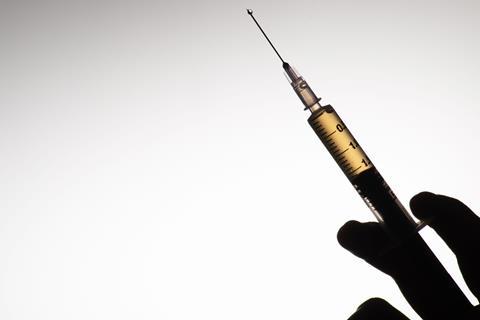Pain relief is not consistently administered to unborn children during late abortions, says James Evans. It’s a subject which has gripped the Christian science teacher, and taken him on an unexpected campaigning journey

It was June 2017. The sun was shining and I was driving to work. The day before, in my role as a science teacher, I was building a resource on reproduction and, while searching for images had stumbled upon a diagram showing a surgical abortion. At the time, abortion was pretty much an alien concept to me.
Struck by the image, as I drove, I prayed for the first time for these little ones. Within moments I was crying, filled with a feeling of love and rage. I heard the words: “Let my people go” (Exodus 9:1). Later that summer, I was sat in Portcullis House discussing the feasibility of a non-governmental inquiry into fetal pain. God had moved.
Following a trail of breadcrumbs since then, I have inadvertently become a researcher in my spare time, and am now co-ordinator for the All Party Parliamentary Pro-Life Group’s Inquiry into Fetal Pain. This year, I sent out Freedom of Information (FOI) requests to every NHS Trust asking about their use of fetal painkillers prior to late (20 weeks+) abortions.
Heartstopper
As reported recently by the Christian Medical Fellowship, CBR UK and Christian Concern, the recommended method for late abortions in NHS hospitals is an injection of potassium chloride directly into the fetal heart.
Potassium chloride is the same drug used to execute prisoners under current US lethal injection protocols.
So what does potassium chloride do, and how would it feel to an unborn baby? A BBC article on Death Row describes it the following way: “to stop the heart, potassium chloride is administered directly after the vecuronium bromide. Without proper sedation, this stage would be extremely painful. The feeling has been likened to 'liquid fire' entering veins and snaking towards the heart. If the inmate is not fully paralysed, their muscles will also spasm uncontrollably, causing them to buck on the gurney, according to Dr Morley. This is because potassium sends signals to every muscle in the body to contract.”
That unborn babies feel pain is something which the Royal College of Obstetricians and Gynaecologists has attempted to deny for decades
As a result of this level of pain, a mis-injection of potassium chloride is classified as an NHS ‘Never Event’. These are serious incidents defined as having the “potential to cause serious patient harm or death” and which require investigation under the Serious Incident framework. According to Human Rights Watch, potassium chloride “is excruciatingly painful if administered without proper anesthesia.”
Hence my question to our NHS hospitals: Do they administer a painkiller prior to injecting a baby’s heart with a substance that, to an adult, feels like “liquid fire”?
Out in the open
The short version is that half of our hospitals do give painkillers beforehand, and a further quarter do if specifically requested by the mother. But do mothers know they can request this?
For decades, parents have been deeply concerned at the prospect of their unborn babies experiencing pain as a result of their decision to terminate the pregnancy. Repeatedly, the abortion industry has brushed aside their concerns.
While it is encouraging that half of NHS hospitals now acknowledge that unborn babies do indeed feel pain (something which the Royal College of Obstetricians and Gynaecologists has attempted to deny for decades), this campaign is far from over: two babies are still injected with potassium chloride without painkiller every single day. A review of our current abortion time limit and late abortion practices are urgently needed.
Shining a light
For reasons beyond me (but I suspect a spiritual dynamic is at play) this information is currently not garnering much attention in the mainstream media. Notably, the only organisations to report it have one common denominator: Jesus. The issue of fetal pain was first raised in parliament in 1988 by Christian peer (then MP) David Alton. The politicians who continue to fight for these little ones are predominantly those with a strong Christian faith.
Andrea Williams, chief executive of Christian Concern, said: “The reality of what unborn babies experience in the womb, especially during late abortions, is the greatest unspoken tragedy of our times. The abortion industry has a lot to answer for in the way it has misled women to believe that babies feel no pain in late abortion. This is plainly untrue.
“The data reveals signs of positive change in the NHS, but it is nowhere near enough. Urgent cross-party action must follow.”
The feeling has been likened to ’liquid fire’ entering veins and snaking towards the heart
In my over-simplistic human imagination, this information should have reached the newspapers years ago: people would have realised that unborn babies feel pain - that they feel full stop and are therefore human – and abortions would have ended. Job done. That obviously didn't happen. However, the Lord is very much at work - and he seems to be starting with his people. There are certainly precedents - just look at the role Christians played in the campaign to abolish slavery.
This, though, is happening in our time, on our watch.
One way that the Church can help is to continue to pray to God, to raise the plight of these little ones to him. Beyond this, please also consider writing to your MP to raise this issue. Even if it’s only one sentence, it does the job. Everything that we do in him will bear fruit. The next breadcrumb on the trail will soon become apparent.



































1 Reader's comment